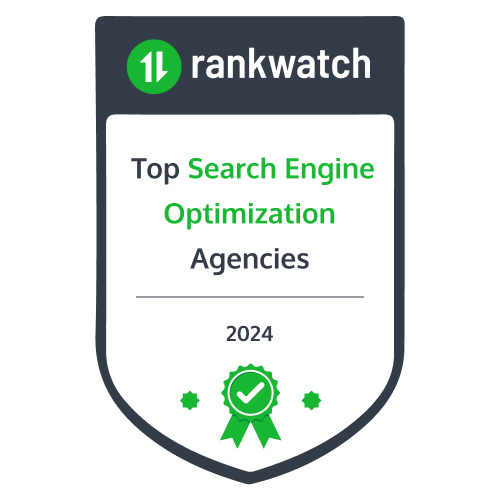In order to evaluate large datasets, spot trends, and deliver useful insights, machine learning algorithms, and predictive models are used in data analytics to empower decision-making. AI can expedite the process of making more informed decisions for organizations by automating data analysis and enhancing accuracy. Improved forecasting, strategy optimization, and experience personalization all result in improved business performance.

This massive amount of data with great variety and speed requires a new way to analyze it as traditional methods failed to provide insights timely and accurately. This makes it hard to make any decision quickly. That’s the point where AI comes in and makes a big difference.
Incorporating AI into data analytics not only streamlines the procedure but also enhances insight accuracy. This facilitates quicker decision-making and enables companies to quickly adapt to changing client needs. Resultantly, AI leads to the growth and innovation of business.
In this article, we will go into detail about how data analytics with AI transforms the process of making any decision.
Role of AI in Data Analytics
AI plays a significant role in data analytics which helps organizations to understand and manage large datasets more effectively. AI automates complex tasks, processes data faster, and finds hidden patterns. So, that means it allows you to make smart and quick decisions.
Listed below are the dominant role of AI in data analytics.
1. Automation of Tasks
AI simplifies the process of handling repetitive tasks like organizing, cleaning, and preparing data for analysis. In the past, analysts spent a lot of time in the collection of raw data. Now, AI handles these tasks more quickly and efficiently by identifying and fixing errors. This scheduled process frees up the time for data analysts to focus on some other strategic work.
2. Enhanced Data Processing
AI processes large amounts of data with speed and accuracy. It proceeds all types of data such as
- Structured data (like spreadsheets)
- Unstructured data (like social media posts)
AI also works well with complex data that traditional tools fail to manage. This type of analysis at the same time allows companies and organizations to find patterns, improve operations, and solve their problems.
3. Pattern Recognition and Prediction
As AI can study past data, it’s a great way to find patterns and make predictions. It identifies the spot trends, relationships, and any unusual event that may be missed by human beings.
For instance, AI can predict market trends, customer behavior, or product demand which helps businesses to plan better. Moreover, by forecasting what might happen next, AI enables companies to stay ahead of changes, manage resources in a better way, and make smart choices.
4. Uncovering Insights from Unstructured Data
Analyzing unstructured data such as images, text, and videos is a very difficult process but AI makes it easier. As traditional tools are just limited to structured data analysis, AI breaks the boundaries. It uses different technologies like natural language processing (NLP) and computer vision.
For example, AI analyzes customer reviews or comments on different social media platforms which helps to understand their pain points. By analyzing this type of data, AI gives a clear picture to companies about their customer needs.
5. Real-time Decision-Making
In today’s fast-moving world, quick decisions are compulsory to achieve success. AI helps businesses to make immediate decisions by providing real-time data insights. This rapid process is especially important for industries like finance (where the market changes quickly) and supply chains (which need constant adjustments).
Let’s have some examples which help you to understand better. In the manufacturing industry, AI can detect equipment problems early, which helps companies resolve those issues before they become costly. In marketing, AI analyzes feedback and customer behavior instantly, which assists businesses in adjusting their strategies on the spot according to their requirements.
6. Personalization and Customer Insights
AI can analyze the past data of customers like their browsing history, past purchases, and recommended products. Then by using these insights, companies offer personalized experiences to customers according to their preferences and behavior.
For instance, online stores use AI to suggest items to their customers according to their match. This makes their shopping more enjoyable and ultimately helps to increase sales.
7. Risk Management and Fraud Detection
By quickly identifying an unusual activity or pattern in data, AI saves from any risk or fraud. Especially in industries like banking, AI continuously monitors the transaction process to spot any suspicious or unauthorized activity. This enables companies to take quick action against such activities to reduce the risk of potential losses.
Similarly, in cybersecurity, AI identifies any vulnerabilities and attacks earlier, which protect against any threat.
Benefits of AI in Data Analytics
Usage of AI technologies in business offer unlimited benefits to businesses. Some of the significant benefits are listed below which can take your business to the next level.
| Benefit | Description |
| Improved Accuracy and Precision | AI analyzes large amounts of data and finds all the patterns and details that may be missed by humans. This ensures accuracy and precision in results. |
| Faster Insights and Real-time Decision-Making | AI processes data quickly and provides insights based on real-time. This allows businesses to make fast decisions to stay competitive in the market. |
| Cost Efficiency and Resource Optimization | As AI helps to automate routine tasks which reduces the pressure of manual work. This automation saves time and money and makes operations run smoothly. |
| Enhanced Strategic Planning | AI gives useful predictions by analyzing past data. It helps businesses to make strategic plans to stay ahead and grow their business. |
| Personalized Customer Experiences | AI looks at the past data of customers and offers them personalized products. This makes them loyal to the brand and develops trust and credibility. |
| Risk Mitigation | AI detects risks and suspicious activities quickly. This helps businesses to protect from any bigger loss or problem. |
| Innovation and Competitive Advantage | Using AI helps businesses to discover new trends and innovations. This strategic approach helps businesses to grow faster as compared to competitors. |
AI Techniques Driving Decision-Making
AI transforms the decision-making process, as it provides more quick and accurate analysis based on real-time. Businesses can gain insights from large data by using AI methods like machine learning (ML) and natural language processing (NLP).
1. Machine learning for predictive modeling
Machine learning (ML) can study past data so it helps to predict future outcomes. It forecasts things like customer behavior, product demand, and market changes.
For example, ML can predict what products customers might buy next or when a machine might need maintenance.
Over time this technology is becoming more convenient in multiple areas like marketing, healthcare, and finance. This helps businesses to make smart decisions, avoid risks, and find new opportunities.
2. Natural language processing (NLP) for analyzing unstructured data
Natural language process is an AI tool which is used by computers to understand human language. It is especially useful to categorize unstructured data like emails, social media posts, and customer reviews. Generally, this type of data is difficult to analyze, but NLP makes this process simple and smooth.
For instance, companies can utilize Natural language processing (NLP) to figure out the customers’ reviews of their products. This helps them to improve their services and make better decisions according to their customers’ demands.
3. Real-time data analysis for dynamic environments
AI quickly analyzes the real-time data as it comes into the system which allows businesses to make quick decisions. Moreover, AI processes live data from various sources such as financial transactions and sensors in factories. This provides instant insights to organizations that need quick changes such as finance and healthcare.
Additionally, AI can detect problems earlier and predict any failure which reduces the risks and ensures smooth operations in a constantly changing environment.
Best Practices of AI in Data Analytics
To get useful and trustworthy data insights from AI organizations need to follow the given below key practices. By keeping data clean, encouraging teamwork, and improving AI models over time companies can make smart decisions for their businesses.
1. Data Quality Assurance
AI can provide valuable insights if the data is accurate and reliable. That means we can say quality data is the foundation for successful AI analytics. This means fixing mistakes in data, removing duplicates, and making sure information is up to date. By regularly checking and cleaning data you can prevent errors that could lead to bad decisions or failure in the future.
2. Interdisciplinary Collaboration
When people from different departments work together AI also works best in that scenario. For instance, data scientists may build AI models, and business experts from other fields facilitate important insights.
So, AI can solve real problems by combining technical skills with business knowledge. This teamwork shows that AI not only produces technically correct answers but also provides valuable insights for businesses.
3. Continuous Learning and Optimization
As data changes over time, AI systems should be updated to get effective results. This requires regular updates and training to get accurate and useful results from AI. Additionally, companies should invest in the training of their team to keep them up to date with the latest AI advancements. By constantly testing and improving AI models, businesses can ensure to deliver accurate insights which helps them to stay ahead in a competitive market.
4. Ethical Considerations and Transparency
When using AI it’s important to guarantee that technology is fair and transparent. AI systems must protect user privacy and should not have bias. The data used for AI should always be gathered after permission.
This approach is especially important in areas like hiring or finance, where biased decisions could harm people. Regular checks on AI systems can help find and fix any issues. By focusing on fairness and openness, companies can avoid problems and gain credibility with users and stakeholders.
5. Experimentation and Innovation
To achieve the best results it’s important to keep on experiments on new things. That means to improve data analysis companies should test different techniques and tools. Innovation allows businesses to uncover new patterns and improve results. Ultimately, by experimenting with new AI technologies like machine learning or deep learning companies can find a new way to achieve success.
6. Scalability and Integration
AI systems must be adapted to handle large amounts of data as business grows. So, it’s important to verify the system can scale up without losing performance. AI tools should also fit easily with the existing setup of the company. When the AI systems are scalable and easy to integrate it becomes smooth and easy for companies to expand their use of AI technology.
7. User Education and Adoption
For effective results from AI, users must understand how to use them properly. Different training programs and clear instructions help users understand the strengths and limits of the tool.
That means there should be open communication between AI experts and users. This verifies that the AI technologies are aligned with your business goal and deliver meaningful insights.
Final Thoughts
AI data analysis transforms the entire process of data analytics and reduces the pressure of manual work. Performing data analysis with traditional methods may cause errors or problems. This may lead to making wrong decisions about the business. Which causes failure or less growth rate of your business.
Moreover, AI technologies have the ability to streamline your business. The requirement is just that you should be familiar with the latest advancements and trends of AI to use it according to your business needs. This strategic approach will definitely lead your business to constant and continuous growth.




